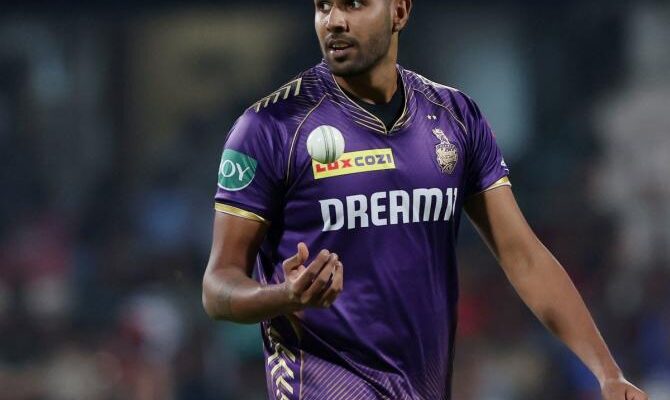The world of professional cricket, particularly in a nation as passionate as India, is a relentless crucible. Every decision, every performance, every selection, is dissected with microscopic intensity. Recently, the spotlight has fallen squarely on young paceman Harshit Rana, whose inclusion in India’s One Day International (ODI) squad for the upcoming Australia series ignited a fervent debate, drawing sharp criticism and an equally fierce defense.
The Spark: A Young Talent Under Fire
Harshit Rana, a 23-year-old fast bowler, found his name on the national squad list, a moment typically met with celebration. However, for Rana, it quickly turned into an unwelcome torrent of questioning. Critics, including sections of the fanbase and former cricketing stalwarts like Krishnamachari Srikkanth, raised eyebrows. The murmurs suggested a perceived favoritism by head coach Gautam Gambhir, given Rana’s consistent presence across formats. The fundamental point of contention was often a comparison to seasoned performers, notably Mohammad Shami, whose recent form had been exceptional. The question echoed across cricketing circles: Was this selection based on raw potential or an undue bias, and at what cost to established talent?
Gambhir`s Roar: A Defense of Integrity and Morale
This swirling tide of criticism did not go unanswered. In a post-match press conference, a visibly impassioned Gautam Gambhir, known for his forthright opinions, launched a staunch defense of his young protégé. His words were direct, uncompromising. Gambhir labeled the personal targeting of a 23-year-old as “shameful,” drawing a clear line between performance-based critique and individual attacks. He pointedly remarked on the financial incentives behind some commentary, a subtle but unmistakable jab at those who might prioritize “YouTube channel views” over constructive engagement.
Gambhir’s argument was clear: professional criticism should focus on performance, with selectors and coaches bearing the primary responsibility for player assessment. To target a young player personally, especially one without the established backing or name recognition, was, in his view, a fundamental breach of responsibility, potentially shattering a player`s morale and stifling their development. “Indian cricket,” he asserted, “doesn`t belong to me… It belongs to every Indian who genuinely wants Indian cricket to do well.” This sentiment underscored a call for collective stewardship and ethical commentary.
The Board`s Backing: A United Front
The Board of Control for Cricket in India (BCCI) Vice-President, Rajeev Shukla, swiftly echoed Gambhir’s sentiments. Aligning with the head coach, Shukla emphasized the critical need for responsible criticism. His statement served as an official endorsement of Gambhir’s stance, reinforcing the message that attacks eroding player morale are unacceptable. The implication was clear: the team management, entrusted with selection duties, operates with a comprehensive understanding of player potential and team dynamics, and their decisions warrant a degree of respect and thoughtful analysis, not personal denigration.
Beyond the Boundary: The Punditry Paradox and Modern Scrutiny
This incident transcends the mere selection of a single player; it illuminates the broader challenges facing modern sports, particularly cricket. It highlights the paradox of punditry: former players, who themselves navigated the pressures of national selection and public opinion, now often find themselves in roles where their commentary can significantly influence public perception and player psychology. The line between informed analysis and detrimental personal attack can often blur, especially when amplified by the instantaneous and often unforgiving echo chamber of social media.
For young talents like Harshit Rana, making the leap to international cricket is already a monumental challenge. To then face an onslaught of personal criticism, fueled by speculation and comparisons, adds an immense psychological burden. It raises vital questions about the ethical responsibilities of those who wield influence in the media and the collective duty of the cricketing fraternity to nurture, rather than dismantle, its future stars.
A Call for Balance
Ultimately, the Harshit Rana selection saga serves as a poignant reminder that while robust debate is intrinsic to sports, it must be tempered with responsibility. Cricket thrives on passion, but it also demands professionalism, both on and off the field. The continuous pursuit of excellence requires not just rigorous training and strategic decision-making, but also an environment where emerging talents can flourish, shielded from undue personal attacks, and judged fairly on their performance—a task for which coaches, selectors, and even the most ardent critics share a collective, moral responsibility.









